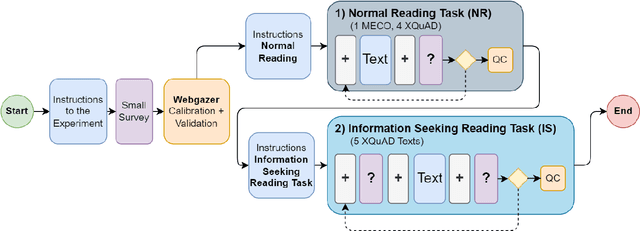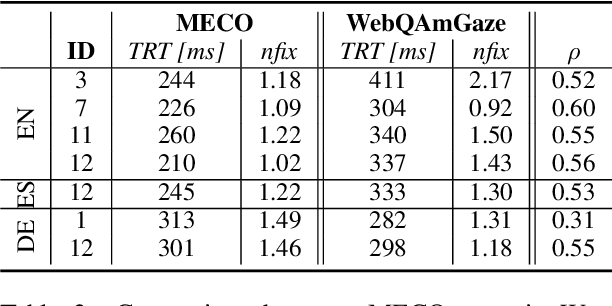WebQAmGaze: A Multilingual Webcam Eye-Tracking-While-Reading Dataset
Paper and Code
Apr 14, 2023



We create WebQAmGaze, a multilingual low-cost eye-tracking-while-reading dataset, designed to support the development of fair and transparent NLP models. WebQAmGaze includes webcam eye-tracking data from 332 participants naturally reading English, Spanish, and German texts. Each participant performs two reading tasks composed of five texts, a normal reading and an information-seeking task. After preprocessing the data, we find that fixations on relevant spans seem to indicate correctness when answering the comprehension questions. Additionally, we perform a comparative analysis of the data collected to high-quality eye-tracking data. The results show a moderate correlation between the features obtained with the webcam-ET compared to those of a commercial ET device. We believe this data can advance webcam-based reading studies and open a way to cheaper and more accessible data collection. WebQAmGaze is useful to learn about the cognitive processes behind question answering (QA) and to apply these insights to computational models of language understanding.
 Add to Chrome
Add to Chrome Add to Firefox
Add to Firefox Add to Edge
Add to Edge